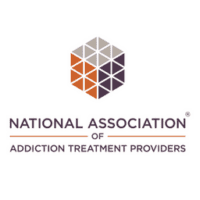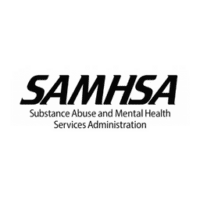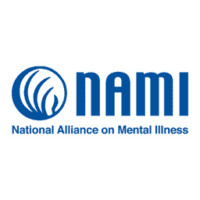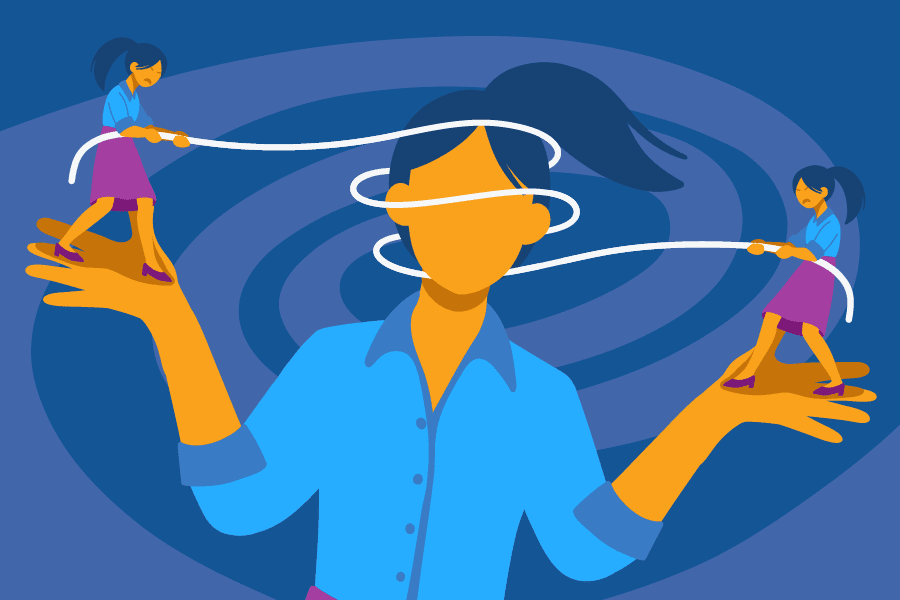What is Schizophrenia & Who Does it Affect?
Schizophrenia is a complex illness that is often viewed a collection of disorders that fall within the Schizophrenia Spectrum. This includes Schizophrenia, Schizotypal (Personality), Schizoaffective, Schizophreniform and Delusional disorders. Any of these disorders or iteration of their labeling may be used to describe a person’s diagnosis.
Schizophrenia is a chronic and debilitating mental illness that usually emerges around late adolescence to early adulthood, though there are exceptions to this pattern. Increasingly, the disease is being seen as developmental, with the appearance of psychosis being the final stage. This indicates that there may be early signs throughout adolescence and a possibility for earlier interventions.
The lifetime prevalence for the disorder had been presented at approximately 1.0%, however, with the inclusion of a larger grouping of disorders and more in depth studies that number has changed. At this time there is an approximately 4.0% lifetime prevalence of the disease.
The Spectrum of Schizophrenia Disorders
There is also a group of Personality Disorders, Cluster A, that encompasses some similar symptomatology as this spectrum but are not considered part of it: Paranoid and Schizoid Personality Disorders. Schizotypal Personality Disorder is placed in both categories by the American Psychiatric Association.
For the sake of clarity, we will discuss the entirety of this spectrum simply labeled as Schizophrenia.
Symptoms of Schizophrenia
There are several overall symptoms that characterize Schizophrenic disorders. A person may only display some of them or all to varying degrees. Symptoms are often described in terms of positive or negative.
Positive meaning the appearance of behaviors that are only seen within the disorder and negative meaning the loss of behaviors that everyone has but are lacking for Schizophrenia.
Positive Symptoms of Schizophrenia
- Delusions
- Hallucinations
- Severely disorganized thoughts
- Disorganized speech
Negative Symptoms of Schizophrenia
- Avolition or a decrease in motivation
- A reduction in a desire for interpersonal relationships
- A dampening of affect or emotional response
The specific disorder diagnosed is dependent on the exactitudes of how the symptoms are displayed. For example, in Delusional Disorder, delusions are the primary symptom and if there are hallucinations they are related to the delusion.
In Schizoaffective Disorder, the above appearance of Schizophrenic symptoms is accompanied by a mood episode, meaning a major depressive or manic episode.
Another specific disorder is Substance/Medication Induced Psychotic Disorder, when symptoms appear in response to intoxication or withdrawal from a substance(s).
Substance Abuse & Dependence in Schizophrenia
Schizophrenia largely co-occurs with Substance Abuse or Dependence. Drug and alcohol use amongst this population is acutely concerning and detrimental. While using is a risk in and of itself, with Schizophrenia it can be particularly destructive. Alcohol is by a wide margin the most commonly abused substance.
It has been found to have a particularly negative effect on the disease increasing the following:
- Severity and occurrence of psychotic symptoms
- Negative response and noncompliance to treatment
- Possibility of violent behaviors
- Incarceration rates
- Instability in housing leading to homelessness
- Suicide rates
- Relapse and interaction with health care system increasing overall cost of care
- Risk of chronic health issues, exposure to HIV
- Negative reaction to psychiatric medication, likelihood of tardive dyskinesia
Unfortunately, individuals often perceive their substances of abuse as helping with symptoms or that there are benefits to their disease when using them. Finding an alcohol treatment facility in Colorado is of particular importance for this population.
Furthermore, there is correlation between substance use comorbidity and Schizophrenia emerging at an earlier age, meaning that those who have Schizophrenia and were misusing substances before showing symptoms, have their first episode at earlier ages than those who do not use substances.
Younger age, being male and having a lower level of education all increase the risk of addiction co-occurring for those who have Schizophrenia. Preventing or halting substance abuse in adolescents or teens who are risk for the disorder is essential. This may mean finding addiction treatment centers or placing a child in intensive outpatient rehab for alcohol or drugs.
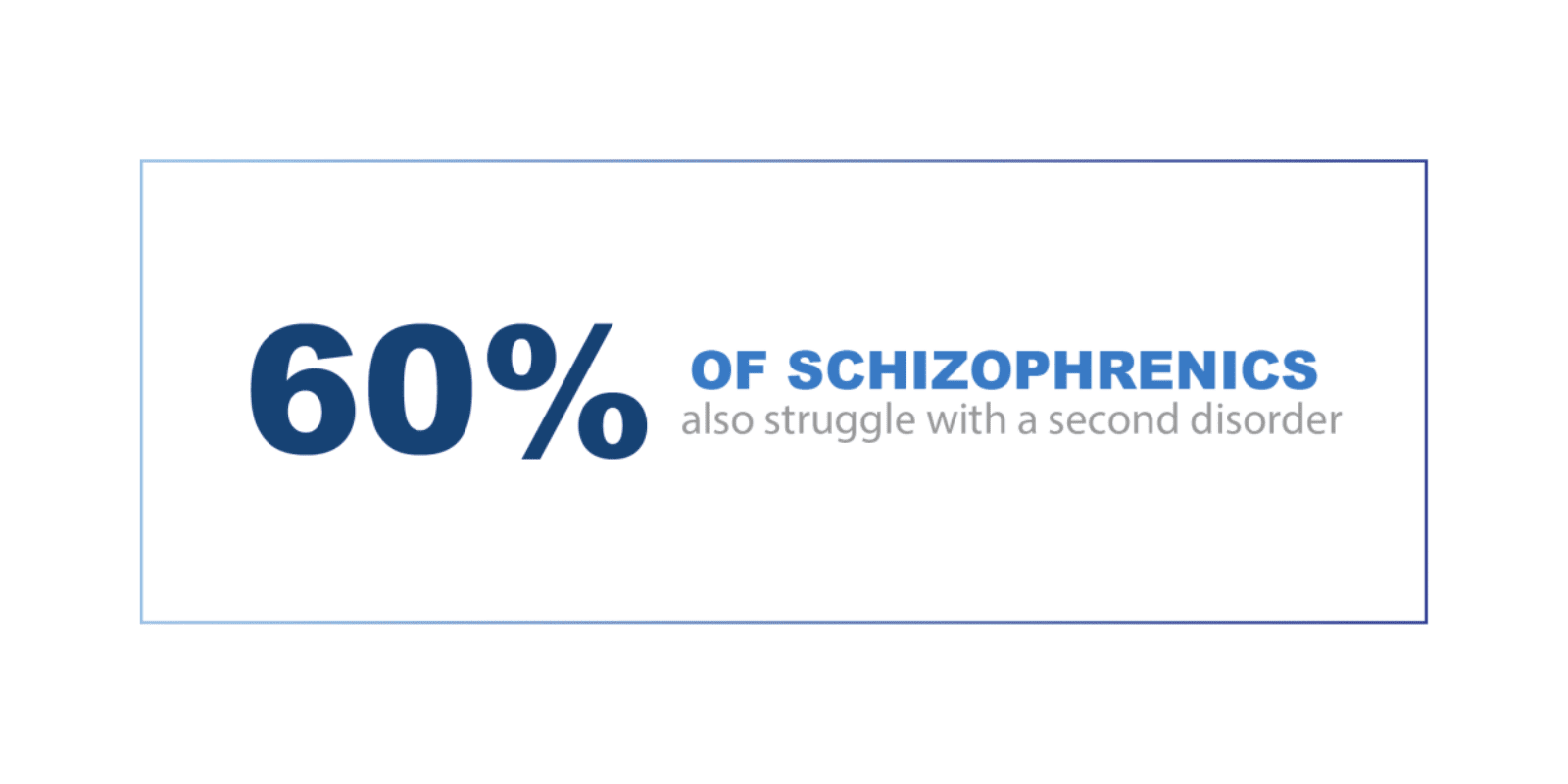
Why does Schizophrenia Occur?
While there is no distinct cause of Schizophrenia, it is known that both genetics and environment play a role. Having a family member who has the disorder greatly increases the possibility of the disease. The closer the relation: identical twin, immediate or extended family, the higher the likelihood is.
The combination of stressful life events with the biological factors is often seen helping the disease to emerge.

Schizoaffective Disorder & Alcohol & Drug Treatment Options
When Schizophrenia initially emerges, sometimes called the first episode, individuals are usually evaluated by a psychiatrist in an institutional setting. However, the disorder requires lifetime care and is usually managed with psychiatric medication. It is usually imperative for the person to stay on these medications and abstain from alcohol or drugs.
Schizophrenic are a notoriously difficult population to treat.
While medication may alleviate symptoms, they also tend to have undesirable side effects both physically and mentally. The symptoms of Schizophrenia include delusions and hallucinations are often accompanied by paranoia, making people very suspicious of interventions and treatment.
Many have delusions that the medication or doctors that are trying to help them are actually trying to work against them or even kill them. These symptoms also make for an unstable population to treat. Maintaining continuum of care can be extremely difficult.
Lastly, the high rate of substance abuse and the effect of it previously discussed exacerbates treatment difficulties. However, this does not mean that treatment is impossible or cannot be effective. It does mean that an individual needs to have proper evaluation, support and oversight of care from parents or other family members if possible.
It also is essential that any possible steps to prevent or stop substance usage or addiction need to be taken.
Schizophrenia & Addiction Treatment with Sandstone Care
If you or someone you know is struggling with a schizoaffective disorder and substance abuse there is help available. Our onsite psychiatrist and clinical team have extensive experience working with mental health issues and providing dual-diagnosis group counseling and individual therapy.
You are not alone. The sooner help is sought out the sooner recovery can begin. We can help and support you through this next step.


Online Treatment Programs
Our virtual IOP program offers the same programming that we offer in person, all online – this is ideal for those who live too far to drive to an addiction center, have transportation issues, or have health concerns that make in-person treatment challenging.
Our Accreditations
